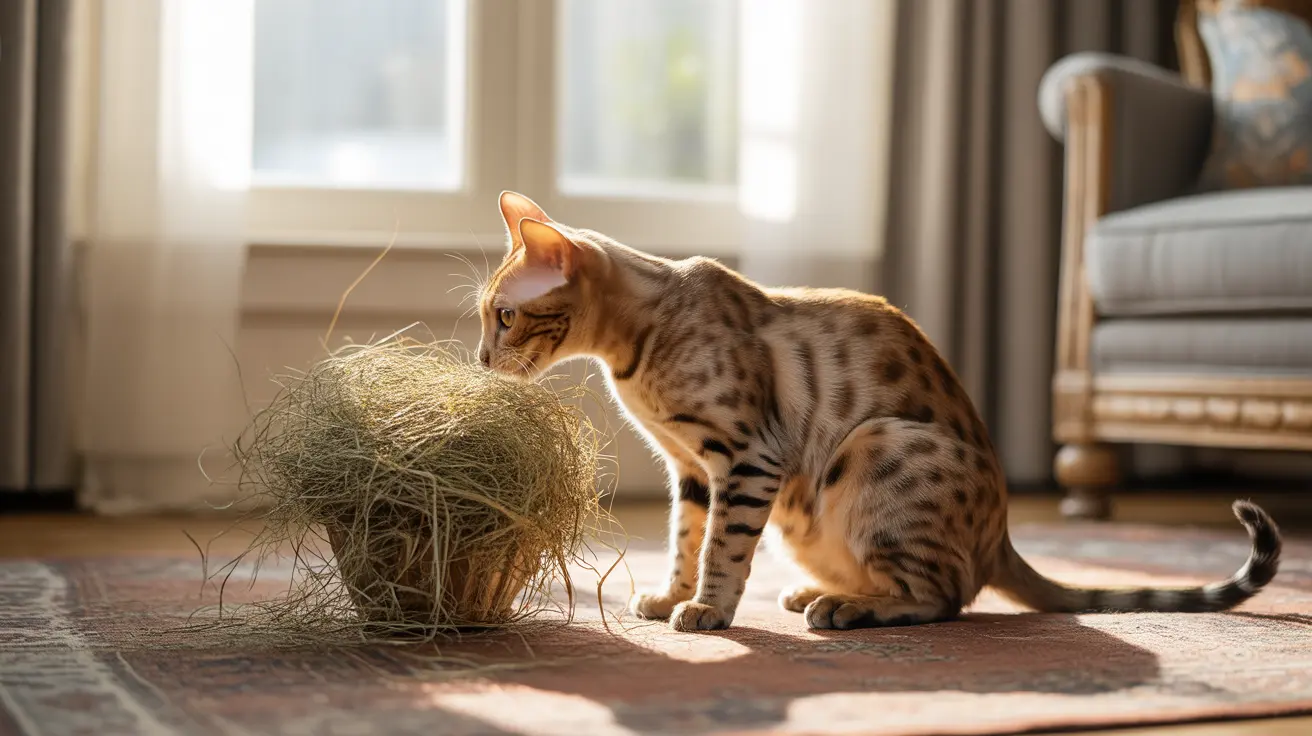Understanding Why Cats Might Eat Hay
Cats are naturally curious creatures, and their exploration often involves tasting different items in their environment. When it comes to hay, several factors might attract your cat:
- Natural instinct to explore through taste
- Curiosity about other pets' food
- Possible digestive discomfort
- Boredom or stress-related behavior
Safety Concerns and Health Risks
While hay isn't immediately dangerous to cats, there are several potential risks associated with its consumption:
Digestive Issues
Cats lack the necessary digestive enzymes to break down plant fiber effectively. This can lead to:
- Vomiting
- Diarrhea
- Stomach discomfort
- Constipation
Physical Hazards
More serious complications can arise from hay consumption, including:
- Intestinal blockages requiring surgery
- Choking hazards
- Irritation of the digestive tract
- Potential exposure to mold or pesticides
Nutritional Considerations
As obligate carnivores, cats require a diet rich in animal protein. Hay offers absolutely no nutritional value for cats, as their digestive systems are designed specifically for processing meat. Essential nutrients cats need include:
- High-quality animal protein
- Taurine
- Essential fatty acids
- Vitamins A, D, and E
- Minerals like calcium and phosphorus
Better Alternatives to Hay
If your cat shows interest in hay, consider offering these safer alternatives:
Cat Grass
- Specially grown wheat, oat, or barley grass
- Easier for cats to digest
- Provides environmental enrichment
- Available at pet stores or easily grown at home
Enrichment Activities
- Interactive toys
- Puzzle feeders
- Climbing structures
- Scratching posts
Prevention and Management
To protect your cat from the risks associated with hay consumption:
- Keep hay storage areas inaccessible to cats
- Provide plenty of appropriate enrichment activities
- Maintain a consistent feeding schedule
- Consider growing cat grass as a safe alternative
Frequently Asked Questions
Is hay safe for cats to eat, or can it make them sick?
While hay isn't toxic to cats, it can cause digestive issues and isn't safe for regular consumption. Small amounts might pass through their system, but larger quantities can cause blockages or upset stomach.
Why does my cat eat hay or grass when it's not part of their diet?
Cats might eat hay out of curiosity, boredom, or instinctive behavior. Some cats may also seek out plant material when experiencing digestive discomfort.
What are the risks if my cat eats too much hay?
The main risks include intestinal blockages, digestive upset, vomiting, and diarrhea. In severe cases, surgical intervention might be necessary to remove blockages.
Are there any nutritional benefits of hay for cats?
No, hay provides no nutritional benefits for cats. As obligate carnivores, cats require animal-based protein and cannot properly digest or utilize nutrients from hay.
What should I do if my cat eats hay, and when should I call the vet?
Monitor your cat for signs of distress after hay consumption. Contact your vet immediately if you notice lethargy, vomiting, difficulty defecating, or loss of appetite.
Remember, while occasional nibbling on hay might not cause immediate harm, it's best to prevent your cat from developing this habit and instead provide appropriate alternatives that better suit their natural dietary needs and behaviors.






